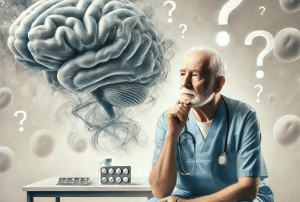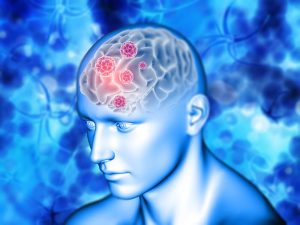Did you often misplace your car keys or a person’s name you just met?
It’s a question that many can relate to, as minor memory lapses are a common part of life. So, it’s essential to discern whether these memory lapses occur occasionally or regularly.
It helps you to understand if it is a part of the aging process or potentially indicative of the onset of memory-related diseases or cognitive concerns that may warrant attention.
In the exploration, we’ll delve deeper into the spectrum of memory lapses and discover when you should be concerned about the memory lapses and require attention from professionals. It helps you make informed decisions about maintaining cognitive health.
Understanding Memory Loss
Memory loss is a condition leading to a decline in remembering things. You cannot recall past events and learn new things. Memory loss is a severe problem that interferes with daily life activities.
Types of Memory Loss
Short-Term Memory Loss: If you suffer from short-term memory loss, you forget recent things. It can be a sign of aging or something severe. The symptoms include:
- Forgetting recent events
- Forgetting things
- Forget something you saw and read recently
- Asking the same questions repeatedly
Long-Term Memory Loss: Some of the long-term memory diseases are Dementia, Alzheimer’s disease, and more. It troubles recalling memories the brain has stored from an hour to decades earlier.
The symptoms of long-term memory loss are:
- Forgetting important dates
- Forgetting how to drive or use a computer
- Forgetting people’s names
- Getting lost in familiar places
- Mixing up words
- Changes in mood or behavior
Mild Cognitive Impairment: Aged people have memory problems that affect their daily functioning. The common symptoms leading to mild cognitive impairment are:
- Losing things more often
- Miss appointments or social events
- Have poor judgment
Causes of Memory Loss
- Mental Health Issues: The issues such as Bipolar disorder, schizophrenia, and more cause problems with short and long-term memory. You may experience difficulty in concentrating and remembering things.
- Epilepsy: The memory worsens with the epilepsy impairment. The seizures impact the memory and contribute to poor quality of life. People who have Epilepsy are at a higher risk of long-term memory issues.
- Dementia: The alterations in brain functionality impact the individual’s daily functioning. Short-term memory issues progress to long-term memory loss as Dementia worsens with time.
- Stroke: The stroke survivors have short-term and long-term memory loss in common. The anxiety, depression, or sleep orders address the memory loss in the persons suffering from stroke.
- Nutritional Deficiencies: Deficiency of B1 or B12 causes memory loss. The B12 keeps the nerve cells healthy and prevents the memory loss.
- Thyroid Issues: Hyperthyroidism and Hyperthyroidism can lead to cause short-term memory loss in individuals. By addressing the thyroid issues, you can reverse the memory loss issues.
Strategies for Memory Improvement
- Mental Exercises for Cognitive Stimulation: Engage in mental exercises such as puzzles, crosswords, and more to strengthen memory and cognitive abilities. These games keep the brain active.
- Organizational Techniques: Information is organized in the memory for easy retrieval. Structure similar terms and create to-do lists to reduce cognitive load and improve memory retention.
- Utilize Mnemonic Devices: Mnemonic devices harness the power of our memory and turn it into a reliable ally. It helps you to recall complex information with ease.
- Healthy Lifestyle Habits: Engage in regular exercise, follow a balanced diet, and have 7-8 hours of adequate sleep to improve cognitive functionality.
- Social Engagement and Cognitive Health: Interact with family or friends as meaningful interactions stimulate memory and preserve cognitive function.
- Mindfulness and Meditation: Practice meditation and incorporate mindfulness to reduce stress and enhance memory consolidation.
- Relate Information: Try relating information to things you already know. It increases the likelihood of recalling the recently learned information.
- Write it Down: Write down every information by hand to enhance the learning concepts. It is an effective way to remember the key information.
- See Your Health Professional Regularly: It is recommended to consult professionals for memory and cognitive functioning as depression and anxiety deteriorate memory.
Conclusion
Memory loss is common as you age. But with preventive measures, you can delay the onset and minimize its effect on an individual’s memory. Prioritize adequate sleep, engage in regular physical activity, and stimulate your mind for optimal functioning and well-being of your brain.





